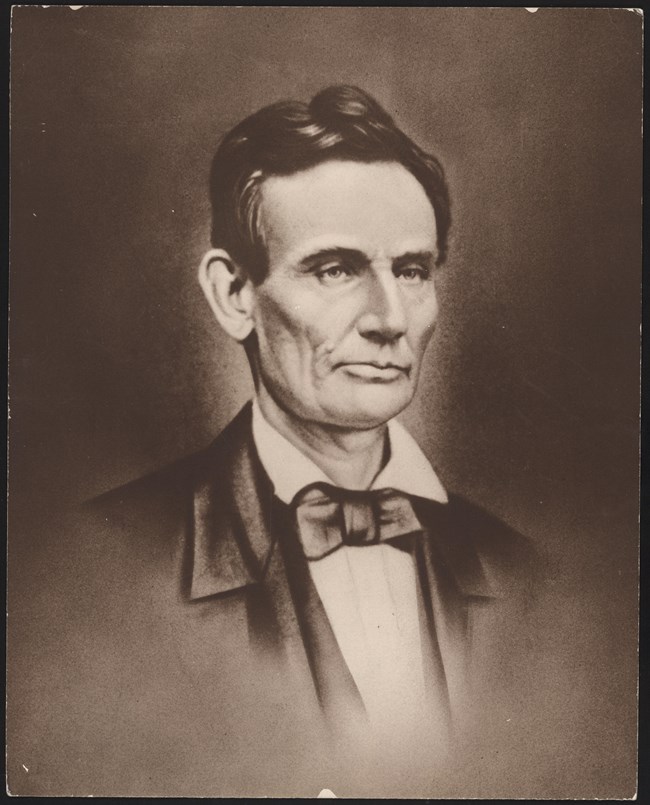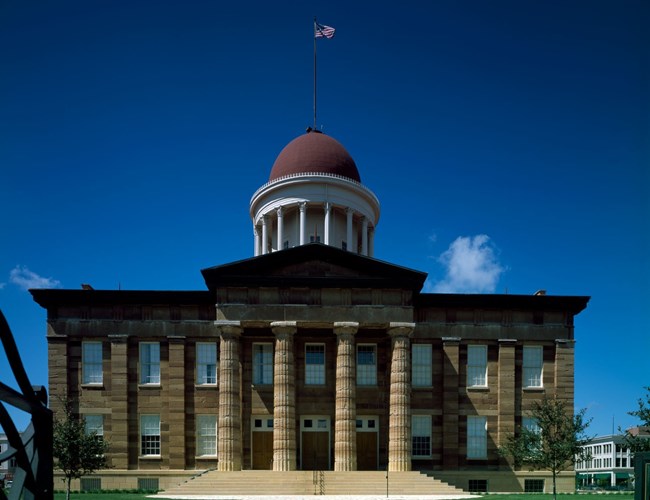Last updated: September 15, 2021
Article
Lincoln in the Illinois State Legislature

Lincoln first won a seat in the Illinois state house in August 1834 at the age of 25. Though shy and awkward as a young politician, Lincoln’s prowess at public speaking forced many to
reconsider their first impressions, and his self-deprecating humor put Illinois voters at ease. Soon after reelection in 1836, Lincoln was awarded the position of floor leader, having gained the confidence of his fellow Whig party legislators. He would win the admiration and respect of political allies and opponents alike, including future campaign rival Stephen A. Douglas, who also served as a state representative from 1836 to 1842.

aspired to put their state on the map. Central to this effort were investments in internal
improvements to strengthen transportation systems in the state. Lincoln believed that projects such as dredging and expanding waterways, building the Illinois and Michigan Canal, and the creation of railroads, would bring much needed commerce and new residents. He was instrumental in championing these projects, and in persuading others in the state legislature to support such programs. Lincoln also had a finely tuned eye to the will of his local constituents. Though Lincoln served his first few terms in the then state capital at Vandalia, he played a key role in votes to move the capital to his adopted hometown of Springfield.
Lincoln’s time in the Illinois House of Representatives was marked by triumphs and failures. Perhaps the greatest political setback he faced during this period foreshadowed the nature of challenges he would encounter during his presidency. Anxious to contribute to the growth of frontier Illinois, Lincoln overwhelmingly supported expensive internal improvement projects throughout the state. The future hopes for the successful development of the state were not always guided by cautious forethought about potential fiscal challenges. The subsequent Panic of 1837 and ensuing economic recession created significant problems that saddled Illinois residents with massive debt for years to come. Much like the Civil War, Abraham Lincoln believed these extensive projects to improve the state could not easily be retreated from, and he and others should persevere through hardship. This episode in Lincoln’s life would provide a cautionary tale about the need to balance political idealism with the political realities of the environment and times.
